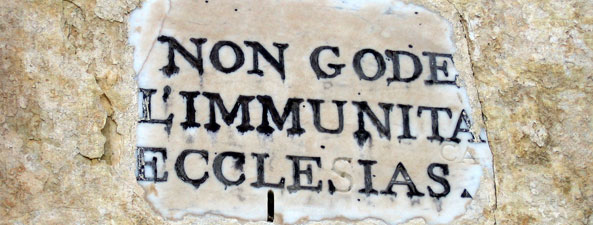
Image source: Kevin Attard, stock.xchng
I found this wonderful essay today, on a blog I like to visit: Oh My Saab (she’s a a fellow Saab owner, and usually has something interesting to say).
The essay “Everything Potent Is Dangerous” was written by Wallace Stegner, for the 1950s radio series “This I Believe”. 57 years later and not much has changed:
Everything Potent Is Dangerous
Wallace Stegner
It is terribly difficult to say honestly, without posing or faking, what one truly and fundamentally believes. Reticence or an itch to make public confession may distort or dramatize what is really there to be said, and public expressions of belief are so closely associated with inspirational activity, and in fact so often stem from someone’s desire to buck up the downhearted and raise the general morale, that belief becomes an evangelical matter.
In all honesty, what I believe is neither inspirational nor evangelical. Passionate faith I am suspicious of because it hangs witches and burns heretics, and generally I am more in sympathy with the witches and heretics than with the sectarians who hang and burn them. I fear immoderate zeal, Christian, Moslem, Communist, or whatever, because it restricts the range of human understanding and the wise reconciliation of human differences, and creates an orthodoxy with a sword in its hard.
I cannot say that I am even a sound Christian, though the code of conduct to which I subscribe was preached more eloquently by Jesus Christ than by any other. About God I simply do not know; I don’t think I can know.
However far I have missed achieving it, I know that moderation is one of the virtues I most believe in. But I believe as well in a whole catalogue of Christian and classical virtues: in kindness and generosity, in steadfastness and courage, and much else. I believe further that good depends not on things but on the use we make of things. Everything potent, from human love to atomic energy, is dangerous; it produces ill about as readily as good; it becomes good only through control, the discipline, the wisdom with which we use it. Much of this control is social, a thing which laws and institutions and uniforms enforce, but much of it must be personal, and I do not see how we can evade the obligation to take full responsibility for what we individually do.
Our reward for self-control and acceptance of private responsibility is not necessarily money or power. Self-respect and the respect of others are quite enough.
All this is to say that I believe in conscience, not as something implanted by divine act, but as something learned from infancy, from the tradition and society which has bred us. The outward forms of virtue will vary greatly from nation to nation; a Chinese scholar of the old school, or an Indian raised on the Vedas and Bhagavad Gita, has a conscience that will differ from mine. But in the essential outlines of what constitutes human decency, we vary amazingly little. The Chinese and Indian know as well as I do what kindness is, what generosity is, what fortitude is. They can define justice quite as accurately. It is only when they and I are blinded by tribal and denominational narrowness that we insist upon our differences and can recognize goodness only in the robes of our own crowd.
Man is great enough creature and a great enough enigma to deserve both our pride and our compassion, and engage our fullest sense of mystery. I shall certainly never do as much with my life as I want to, and I shall sometimes fail miserably to live up to my conscience, whose word I do not distrust even when I can’t obey it. But I am terribly glad to be alive; and when I have wit enough to think about it, terribly proud to be a man and an American, with all the rights and privileges that those words connote; and most of all I am humble before the responsibilities that are also mine. For no right comes without a responsibility, and being born luckier that most of the world’s millions, I am more obligated.
Tags: beliefs, Everything Potent is Dangerous, faith, God, Me, moderation, religion, Stegner, Stegner essay, Wallace Stegner
Thank you for posting this Stegner essay. His writing is amazing, and he is a favorite writer of mine. He was also loved by my friend, who recently died, and who requested this essay be read at her memorial service in December. His believes so summed up hers.
I was thinking of a few lines from it recently, and I was so glad to find it here. Thank you again.
K.
Kirie,
I’m so glad you enjoyed this posting of the essay. I’m honestly not that familiar with most of Stegner’s writings, however, this essay says so eloquently how I feel on many subjects.
What’s so arresting about this essay is the fact that while it was written over 50 years ago, the words hold true as much today as they ever did.
Thank you for taking the time to comment and I’m glad this essay has “found” another person.
Melissa